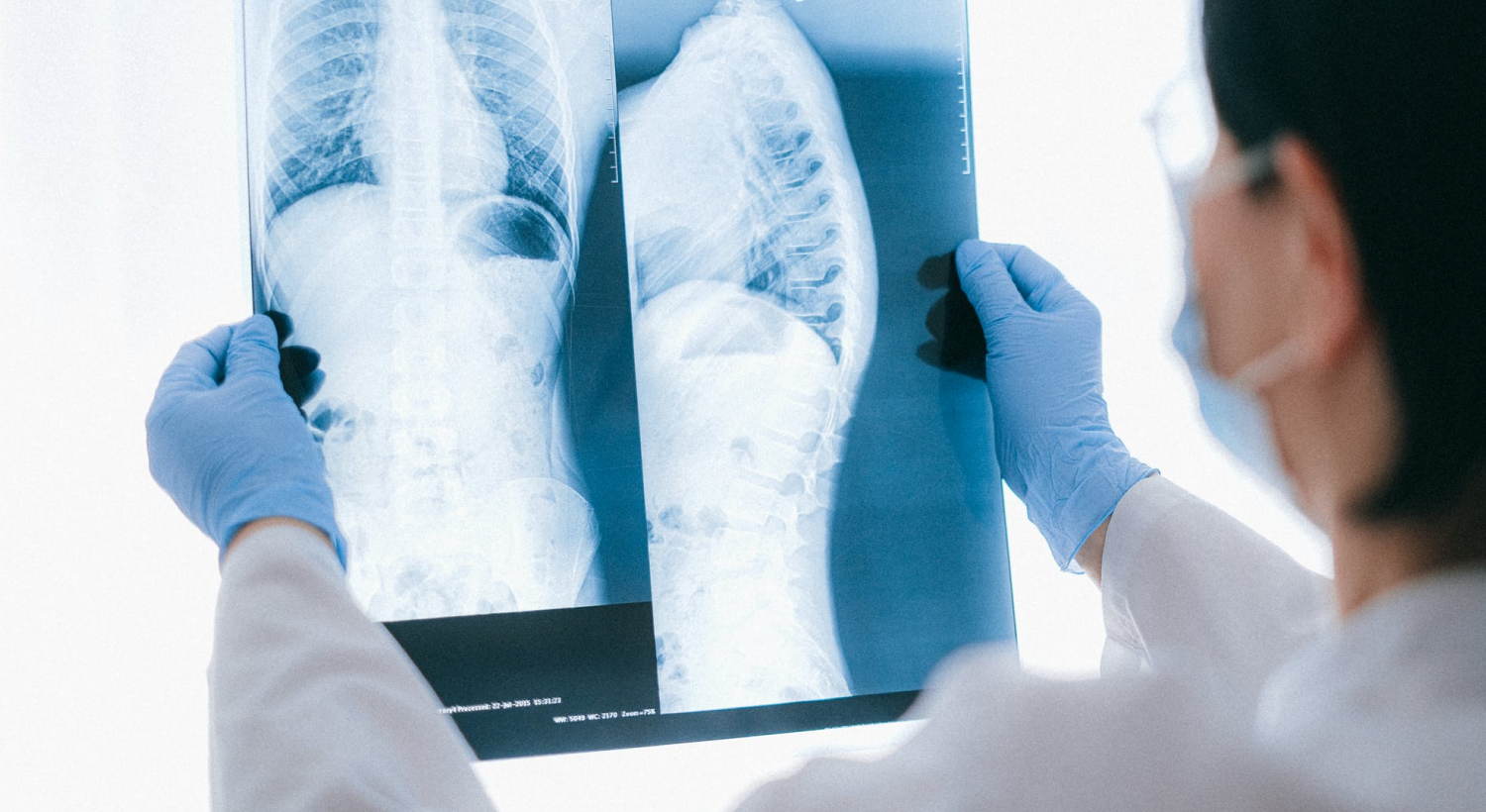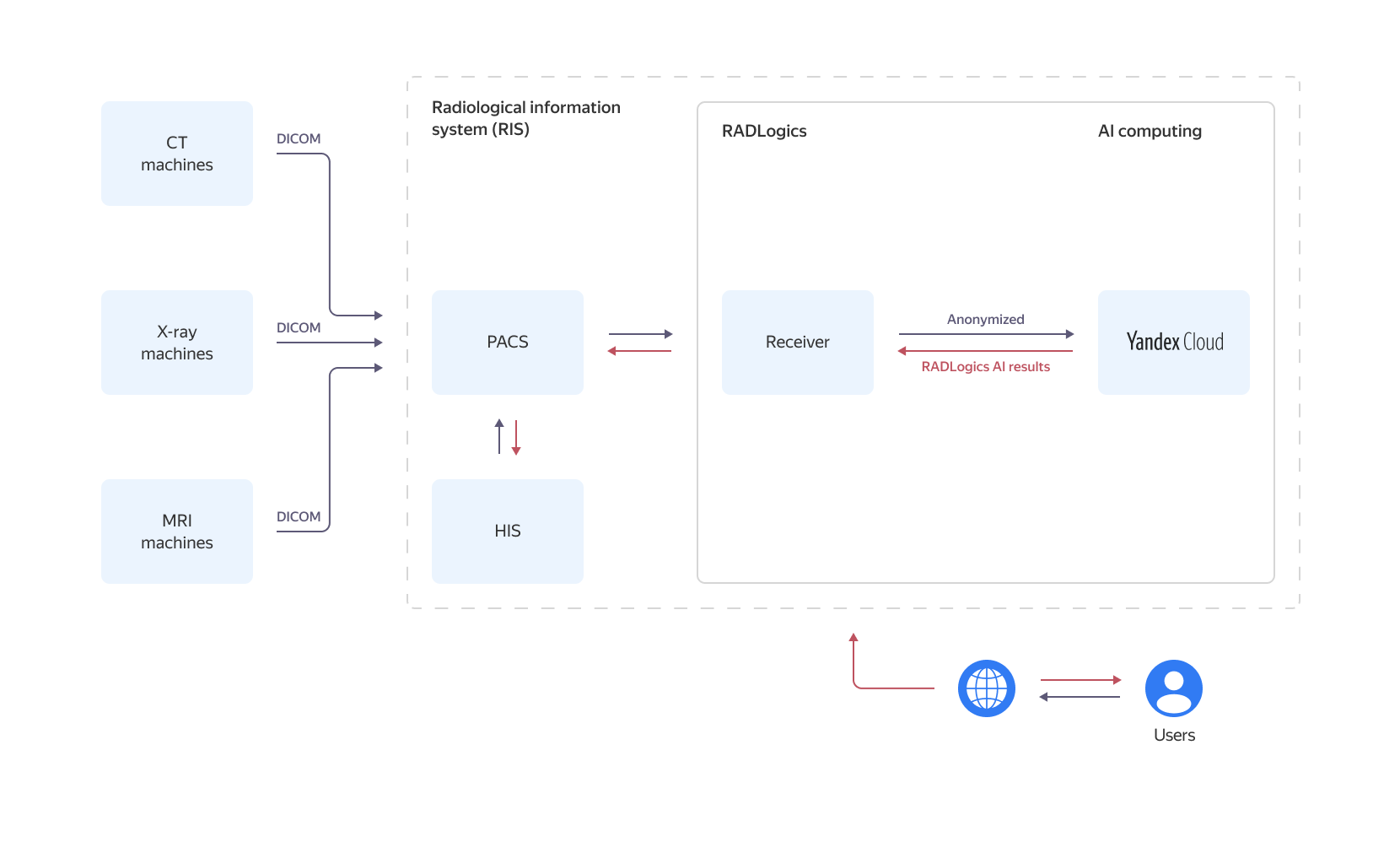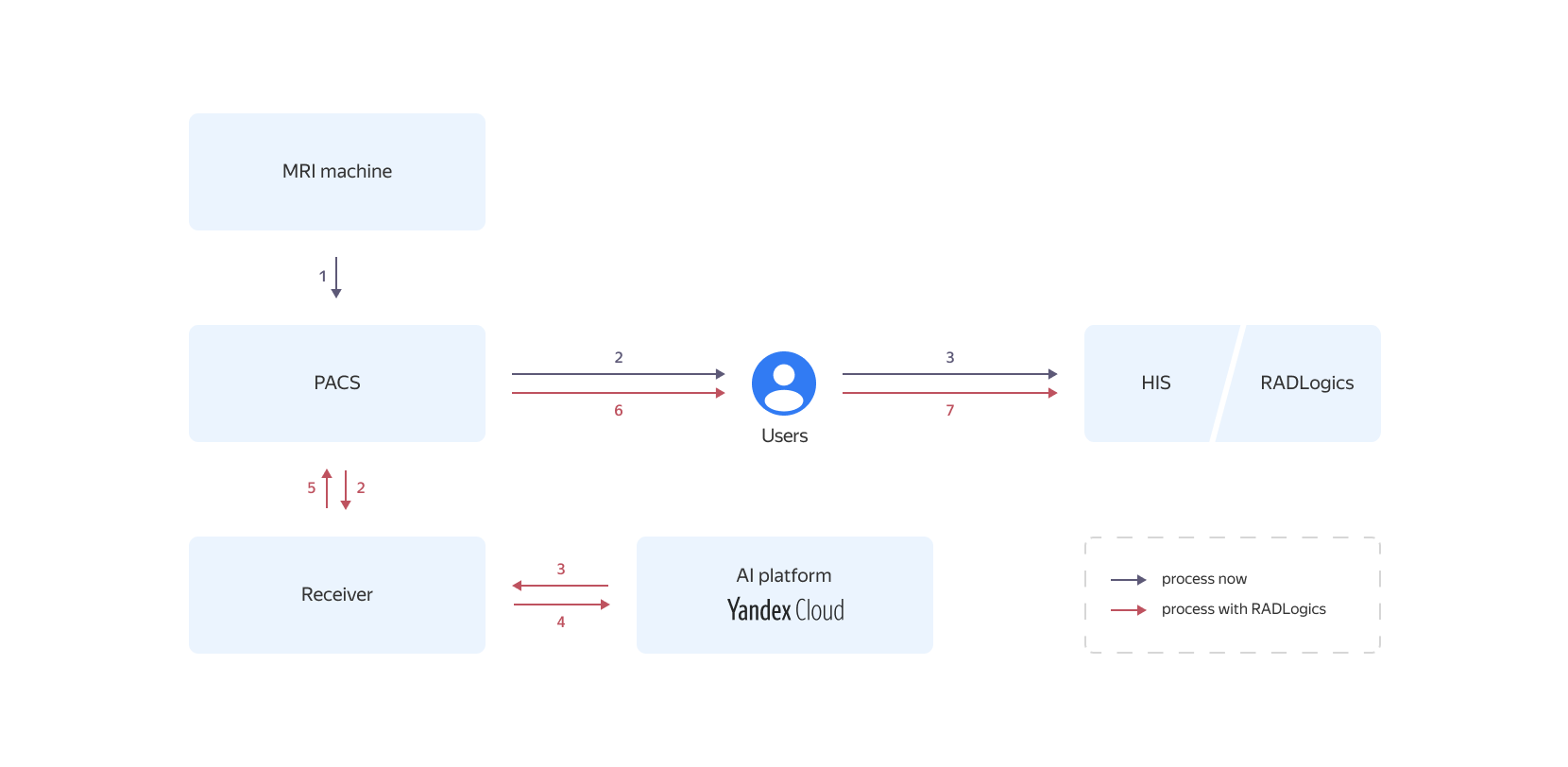RADLogics instant lung snapshot analysis in Yandex Cloud for early diagnosis of COVID‑19

About the company
RADLogics
Our solutions are used in countries around the world, including Russia, the United States, China, India, Serbia, and Italy. RADLogics works with the world’s leading hospitals and universities, including Mount Sinai Hospital (New York), San Raffaele Hospital (Milan), and Albert Einstein Israelite Hospital (San Paolo).
In Russia, we integrated our platform with innovative computer vision experiments for medical imaging, instant detection of the COVID-19 coronavirus based on CT analysis, and further implementation of the technology in the Moscow healthcare system.
RADLogics is a platform for AI-powered medical imaging
During the pandemic, our goals were to create efficient models of diagnostics and treatment under high patient flow, to improve the quality of medical examinations, and to decrease the burden on health workers.
The main RADLogics development is an AI-based software platform for medical imaging, whose speed and accuracy surpasses that of expert radiologists.
The platform currently allows for automatically interpreting CT scans, including CT diagnostics of lung cancer, COVID-19, pleural fluid, and pneumothorax. The platform also supports automatic aortic measurements and X-ray image analysis (to diagnose cardiomegaly, COVID-19, pneumothorax, and enable endotracheal intubation). PET/CT scan analysis is planned for Q3 2020, and MRI scan analysis is planned for 2021.
In the case of computer tomography, deep learning algorithms can reach 98.2% sensitivity (probability of correct diagnosis on sick patients) and 92.2% specificity (probability of correct diagnosis on healthy patients).
RADLogics in Yandex Cloud
The RADLogics platform integrates into the existing radiological workflow without changing it. Radiologists continue using familiar tools. A special receiver is used to transmit anonymized medical images from the Picture Archiving and Communication System (PACS) to Yandex Cloud.

In this article, we’ll talk about
The end-to-end workflow for image processing and analysis is implemented on Yandex Cloud, leveraging the computing power of the cloud platform that runs virtual machines with NVIDIA® Tesla® V100 GPUs. On average, it takes 3-5 minutes for the platform to get an image from PACS, process it, and send the report to the medical system. The total amount of time spent per scan, including data transmission, is 8-12 minutes. We’re now working on reducing those figures and speeding up all systems involved.
Image processing in Yandex Cloud includes several steps:
- Scan prioritization (triage) based on preset parameters: pathology type and disease severity.
- Automatic pathology measurement. Tissue changes on images are marked in color or highlighted. Additional visualization features: 3D, heat maps.
- Generating a draft diagnostic report in relevant formats (DICOM SR (Structure report), FHIR, Word, JSON, PDF, HTML), and medical presets: volume and percentage of lung damage, classification by the degree of damage, and so on.

Faster, higher, stronger
RADLogics enables you automatically detect pathologies, safeguarding you against medical error, and enables complex measurements and visualizations. Our computer vision algorithms can distinguish the pathology of viral pneumonia caused by SARS-CoV-2 from bacterial pneumonia.
By virtue of cloud deployment of their platform, RADLogics can now quickly and, most importantly, remotely configure the software and its integrations with radiological systems (PACS, RIS, MIS) run in clinics. This lets us quickly connect diagnostic departments even in remote areas and meet a uniform country-wide standard for disease diagnosis.
The cloud infrastructure also saves us money and time on purchasing, deploying, configuring, and maintaining of expensive server equipment. We fully meet the requirements of the local regulatory.

